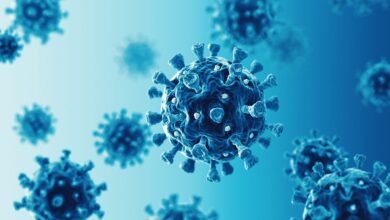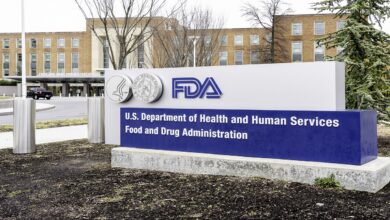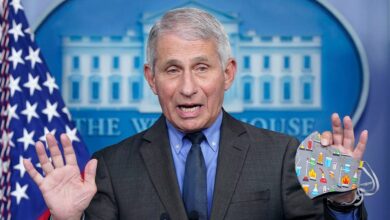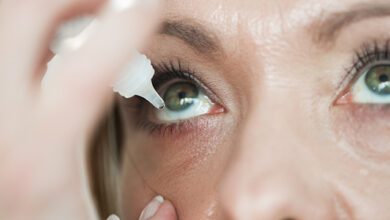Why Is There No Booster Shots for Johnson and Johnson COVID-19 Vaccine?
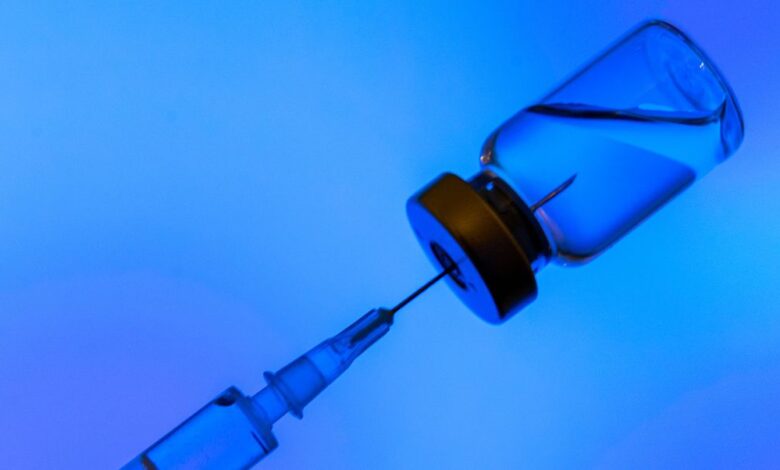
[ad_1]
- While booster shots will roll out to those who received an mRNA vaccine later this fall, federal health officials are currently excluding Johnson & Johnson vaccine recipients from booster opportunities.
- Researchers and developers at Johnson & Johnson are working now to determine whether individuals should receive another dose of the same vaccine, which reportedly offers immunity against COVID-19 for upwards of eight months.
- There’s a chance that those who received a Johnson & Johnson vaccine will need to receive a second booster dose of an mRNA vaccine.
- It’s currently unclear when federal officials will determine how this group of vaccinated individuals will receive a booster vaccine.
Shortly after approving additional booster shots for immunocompromised individuals last week, White House officials have announced that a round of third vaccines known as “booster” shots would be available soon for all Americans. These additional doses will be administered just about eight months after an individual’s last dose of an mRNA vaccine (currently manufactured by Pfizer or Moderna), and the Washington Post reports that these third booster shots will be made available starting September 20.
The decision to greenlight additional doses came after a compilation of data presented by officials at the Centers for Disease Control and Prevention (CDC) indicated that vaccines’ efficacy to prevent serious COVID-19 infection dwindles over time, something that researchers have been studying for months. Both Pfizer and Moderna officials have also indicated that six months is a general timeline for optimal protection after a full two-series mRNA vaccination. This, combined with company statements that suggest additional booster vaccines can help combat the highly infectious Delta variant, likely influenced American health officials to begin officially recommending another dose for most Americans.
But what about the approximately 14 million people who have received the adenovirus-engineered vaccine from Johnson & Johnson? For now, federal health officials have yet to disclose whether these single-dose recipients will be eligible for another shot — despite this vaccine reportedly offering slightly less protection against COVID-19 symptoms than others on the market (the company cited data suggesting it was 66% effective earlier this year).
Why are there no boosters available for Johnson & Johnson vaccines?
Most simply, the emergency use authorization (EUA) amendment that Food and Drug Administration (FDA) officials recently passed only applies to mRNA vaccines — meaning, those shots made in part by teams at Pfizer and Moderna, not Johnson & Johnson.
In updating their advice for immunocompromised individuals, CDC personnel indicated that the reason Johnson & Johnson recipients are left out of current booster shots has to do with data available on third doses.
“Emerging data have demonstrated that immunocompromised people who have low or no protection following two doses of mRNA COVID-19 vaccines may have an improved response after an additional dose of the same vaccine. There is not enough data at this time to determine whether immunocompromised people who received the Johnson & Johnson’s Janssen COVID-19 vaccine also have an improved antibody response following an additional dose of the same vaccine.”
While there isn’t a directive on when those who received a Johnson & Johnson vaccine will need another shot, it’s expected that health officials will update guidance in the following weeks with clearer directions. A Johnson & Johnson spokesperson told CNN that the company is in the process of gathering more data on prolonged immunity now to help determine this policy change.
It’s understandable if you’re concerned about the rapid spread of the Delta variant (and other variants, too) — but a Johnson & Johnson vaccine will still provide you more protection against serious life-threatening COVID-19 symptoms than no vaccine at all.
Researchers at the company concluded that their vaccine offered antibody immunity that lasted at least eight months, which is slightly longer than both mRNA vaccines on the market currently. Furthermore, Johnson & Johnson’s vaccine also proved to be effective against Delta strains and other variants, per the company.
When will Johnson & Johnson booster shots be available?
Currently, there isn’t a timeline for officials to release more information on whether those who received the Johnson & Johnson shot will need to sit for another dose of the same vaccine later this fall. But some healthcare providers have been allowing their patients to receive another dose of an mRNA vaccine from another manufacturer altogether — and that option could be offered to you, depending on your medical background.
This content is imported from Instagram. You may be able to find the same content in another format, or you may be able to find more information, at their web site.
Health officers in San Francisco, for example, will allow those who received a Johnson & Johnson vaccine to get a booster dose of either Pfizer or Moderna vaccines, per local reports. And San Francisco isn’t the only place where this is common; German health officials recommended that those who received a first dose of the European-based AstraZeneca vaccine receive a second mRNA dose unlike their first. Plus, current research indicates that doing so resulted in a superior immunity response compared to those who didn’t receive a booster shot at all.
It’s currently against CDC guidelines, but there’s a chance that your healthcare provider may consider administering a booster dose of another vaccine if you received the Johnson & Johnson shot earlier this year.
More likely, however, is that you’ll need to wait for further guidance following the release of booster data from Johnson & Johnson researchers. Federal health officials have indicated that people should stick with the same manufacturer and type of vaccine they received initially if at all possible. Guidelines suggest that there isn’t enough information around mixing and matching vaccines here in the United States to indicate a true immune boost that most are hoping for, and whether or not this practice is safe in the first place.
As more information about the coronavirus pandemic develops, some of the information in this story may have changed since it was last updated. For the most up-to-date information on COVID-19, please visit online resources provided by the CDC, WHO, and your local public health department.
This content is created and maintained by a third party, and imported onto this page to help users provide their email addresses. You may be able to find more information about this and similar content at piano.io
[ad_2]
Source link


